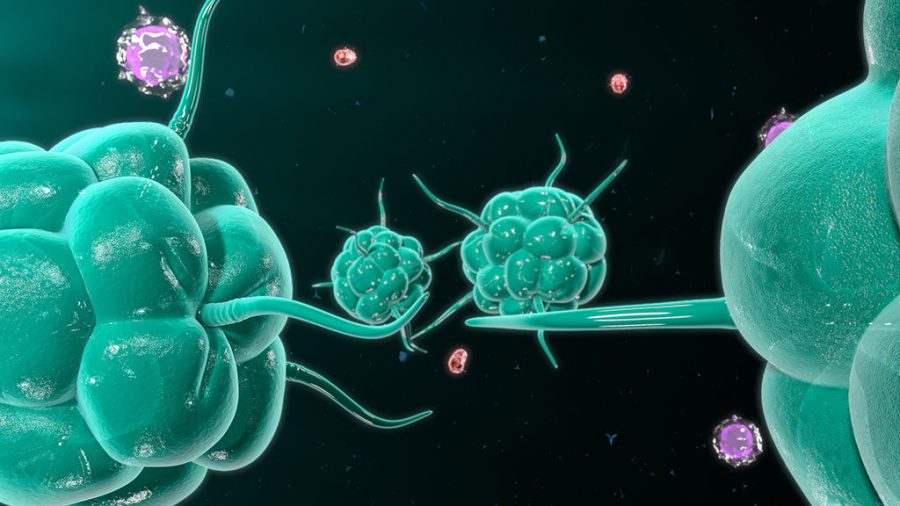Understanding the effects of cannabis on the immune system
The cannabis plant’s primary cannabinoids could improve the way in which the immune system functions
Once upon a time, the cannabis plant was cloaked in obscurity and misunderstanding. Formerly tarnished with the “gateway drug” reputation – a myth that was recently dispelled by scientists – cannabis is finally emerging from the shadows as a medical powerhouse plant.
Packed with a punch of goodness in the form of cannabinoids and terpenes, the green plant has been legalized for medical purposes in 33 U.S. States and Washington D.C. so far. As more scientists unlock the benefits of treating the human body with weed, more places on the map are expected to follow in the footsteps of weed-friendly states like Arizona, Montana and New Mexico.
Want to learn how cannabis influences the immune system? We have composed a simple, yet informative article to enlighten you on the topic.
What is the Endocannabinoid System (ECS)?
Every single person’s body is created with its own endocannabinoid system (ECS). This biological system is composed of endocannabinoids, which are endogenous lipid-based retrograde neurotransmitters that bind themselves to cannabinoid receptors. These receptors are found throughout the human body.
Once the endocannabinoid binds itself to a suitable receptor, a response is triggered to encourage homeostasis; in order to maintain the stability of biological systems, cells need to be able to procure and utilize energy in order to produce new cells, interchange materials and discard of all waste.
Naturally occurring cannabinoids including THC (tetrahydrocannabinol) and CBD (cannabidiol) bind perfectly with cannabinoid receptors inside the human body’s ECS to promote a vast array of physiological functions. Examples include:
- Appetite levels and and food cravings
- Blood sugar regulation
- Digestive system
- Immune system
- Metabolism
- Nervous system
- Oxidative stress
- Pain sensation
- Thermoregulation
- Mood
- Memory
Cannabis’ active chemicals are immunomodulators
The cannabis plant is capable of altering the effects produced by the immune system. It grows with an abundance of naturally-occurring chemical compounds known as cannabinoids. Because of this, the cannabis plant is fast becoming a preferred medicine for the treatment of various types of infection and disease.
 The non-psychotropic cannabinoid CBD’ – is grasping the attention of doctors and scientists around the world for its ability to enhance overall well-being and bolster the body’s defense system.
The non-psychotropic cannabinoid CBD’ – is grasping the attention of doctors and scientists around the world for its ability to enhance overall well-being and bolster the body’s defense system.
Scientists have determined that this cannabinoid in particular is especially effective when used as an immunomodulator. This means that the plant’s primary cannabinoids could improve the way in which the immune system functions through balancing immune cell ratios.
More studies needed to determine efficacy of cannabis on the immune system
Further research is needed to fully ascertain whether or not cannabis’ influence on the immune system can help tackle a broad scope of autoimmune diseases, including AIDS and HIV. Fewer viral loads and higher CD4 immune cell counts were discovered following a 2015 study that saw patients receive monitored doses of cannabis.
However, with the research that currently exists, we have learned that cannabis may prove beneficial as an anti-inflammatory aid for treating autoimmune health conditions/ailments like allergies, arthritis, lupus and multiple sclerosis (MS), as well as for respiratory conditions, like asthma.
What’s more, the symptoms of neurodegenerative and neuroinflammatory conditions could be relieved by using cannabinoids as a treatment, thanks to their natural efficacy at modulating neurogenesis and neurodegeneration.








